Political Sociology \ 1-1
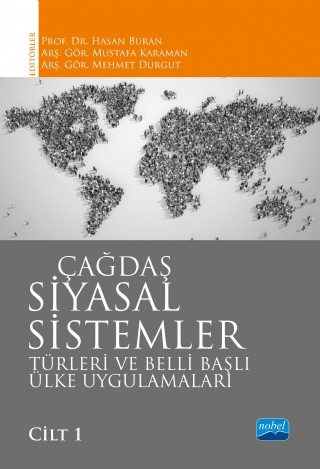
Since the formal framework of the political systems is determined by the constitution and laws of the relevant country, it is possible to have a certain idea about the general characteristics and functioning of the political regime. However, in addition to the constitution and some basic laws of a country, looking at the historical, geographical, social, cultural and economic characteristics of that country, its political parties, party system, election system, pressure and interest groups, is a more accurate and more consistent analysis of the functioning of the political system in that country. will further increase our ability to do so.
This work; It is composed of two volumes, to some extent interconnected, to some extent independent. In this first volume; the state, state theories, elements of the state, democracy, legislative, executive, judiciary, election, electoral systems, pressure and interest groups and party systems are discussed theoretically. Then, country practices that will be suitable for political regimes and their sub-derivatives are given. The Swiss practice is given as a partial example of the Parliamentary Government System, one of the systems based on the union of powers. Among the political systems based on the separation of powers, the country practices of England, Sweden and Saudi Arabia as an example of the Parliamentary System with a Constitutional Monarchy, and the country practices of Germany, Italy and the Republic of South Africa as an example of the Republican Parliamentary System are included.
In the second volume, 10 different presidential systems related to five sub-derivatives of semi-presidential systems, 4 different presidential systems related to sub-derivatives of presidential systems, and the Presidential Government System in Turkey will be covered.
Hope it will be helpful to the reader...
This work; It is composed of two volumes, to some extent interconnected, to some extent independent. In this first volume; the state, state theories, elements of the state, democracy, legislative, executive, judiciary, election, electoral systems, pressure and interest groups and party systems are discussed theoretically. Then, country practices that will be suitable for political regimes and their sub-derivatives are given. The Swiss practice is given as a partial example of the Parliamentary Government System, one of the systems based on the union of powers. Among the political systems based on the separation of powers, the country practices of England, Sweden and Saudi Arabia as an example of the Parliamentary System with a Constitutional Monarchy, and the country practices of Germany, Italy and the Republic of South Africa as an example of the Republican Parliamentary System are included.
In the second volume, 10 different presidential systems related to five sub-derivatives of semi-presidential systems, 4 different presidential systems related to sub-derivatives of presidential systems, and the Presidential Government System in Turkey will be covered.
Hope it will be helpful to the reader...
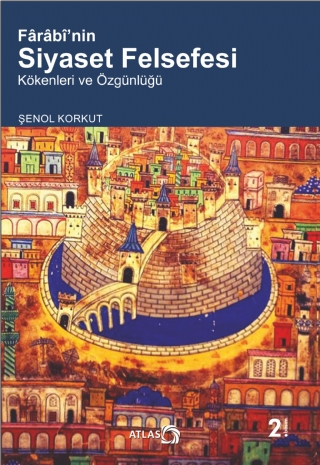
This book examines the political philosophy of the Second Muallim Fârâbî in terms of its origins and originality.
Fârâbî, who built the political science and philosophy in Islamic thought as a science, also pursued a series of alternative political theories to the political thought of the Athenian-oriented Greek philosophy. Al-Farabi, who built a unique political philosophy between the political elements brought by the revelation of Islam and the ancient Greek political philosophy, on the one hand brought new problem areas to political philosophy, on the other hand, he brought a new horizon to Islamic thought with the doctrine of virtuous and virtuous cities. It is possible to see the virtuous and immoral perspectives developed by the philosopher on the ground of philosophy, nation and medina, in all the problem groups he examines about political philosophy. In this book, on the one hand, virtuous philosophy, virtuous religion and the idealized philosophical adventure of the virtuous city are examined, on the other hand, the story of corrupt philosophy, corrupt religions and unvirtuous cities in the philosophical filter of the Second Teacher is discussed.
Fârâbî, who built the political science and philosophy in Islamic thought as a science, also pursued a series of alternative political theories to the political thought of the Athenian-oriented Greek philosophy. Al-Farabi, who built a unique political philosophy between the political elements brought by the revelation of Islam and the ancient Greek political philosophy, on the one hand brought new problem areas to political philosophy, on the other hand, he brought a new horizon to Islamic thought with the doctrine of virtuous and virtuous cities. It is possible to see the virtuous and immoral perspectives developed by the philosopher on the ground of philosophy, nation and medina, in all the problem groups he examines about political philosophy. In this book, on the one hand, virtuous philosophy, virtuous religion and the idealized philosophical adventure of the virtuous city are examined, on the other hand, the story of corrupt philosophy, corrupt religions and unvirtuous cities in the philosophical filter of the Second Teacher is discussed.
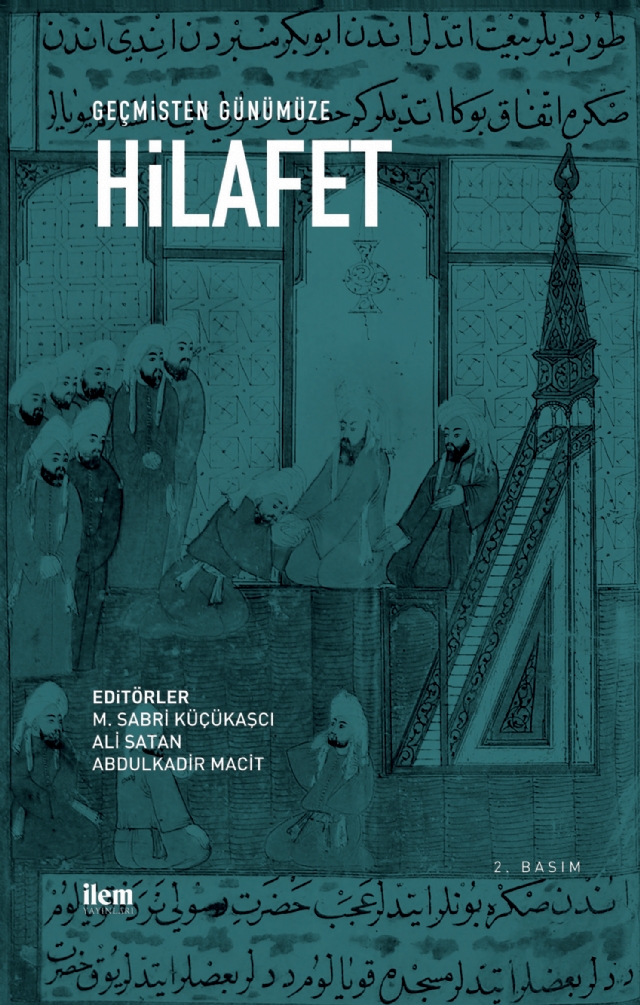
The caliphate, one of the most important institutions in the history of Islam, is among the critical concepts of the literature of Islamic political thought. The way the concept takes place in Islamic sources and its forms that have been the subject of theological and political thought have responded to the states' search for sovereignty and authority since the first periods of Islamic history.
This book, which includes 9 articles, puts forward the issues such as what kind of process the caliphate followed in the pre-modern period and what functions it fulfilled, and what discussions took place about it. It aims to benefit from the past experience in the determination and criticism of current issues.
It is hoped that this study/work, which contains the papers of the workshop held on the occasion of the 500th anniversary of the succession of the Caliphate to the Turks, will be instrumental in many more new/original researches and will serve to commemorate and understand this great historical heritage correctly.
This book, which includes 9 articles, puts forward the issues such as what kind of process the caliphate followed in the pre-modern period and what functions it fulfilled, and what discussions took place about it. It aims to benefit from the past experience in the determination and criticism of current issues.
It is hoped that this study/work, which contains the papers of the workshop held on the occasion of the 500th anniversary of the succession of the Caliphate to the Turks, will be instrumental in many more new/original researches and will serve to commemorate and understand this great historical heritage correctly.

There are many attempts to define the nature of man. The most common and almost agreed upon among these attempts is that man is a political creature. Man is a being who lives in a community, makes sense and establishes himself in a community. However, the transformation of this obligatory union of people into a good and fair system poses an important problem. Various political systems have been developed throughout history to establish and maintain such a social order. One of the most important and urgent problems facing humanity today is the formation of a good, beneficial and just order for everyone.
This work has been prepared in order to draw a theoretical framework for Islamic political thought by using the possibilities and tools of contemporary political science and political philosophy.
This book, which includes 11 articles written by competent academics in the field, aims to provide new expansions of classical origin to Islamic political thought, which has been shaped by Western influence in the modern period. For this reason, it aims to systematically address ancient issues in a conceptual continuity and thus to bring Islamic political thought to the present.
This work has been prepared in order to draw a theoretical framework for Islamic political thought by using the possibilities and tools of contemporary political science and political philosophy.
This book, which includes 11 articles written by competent academics in the field, aims to provide new expansions of classical origin to Islamic political thought, which has been shaped by Western influence in the modern period. For this reason, it aims to systematically address ancient issues in a conceptual continuity and thus to bring Islamic political thought to the present.
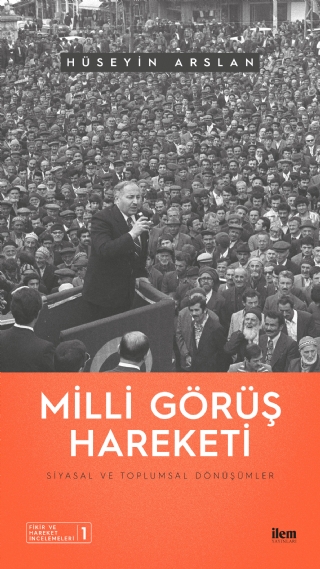
The book Milli Gorus Movement: Political and Social Transformations is an analysis of a movement that left its mark on the political history of Turkey and became the catalyst for social transformation. The Milli Gorus movement, which started with the entry of Necmettin Erbakan into politics in 1969, marks a turning point for Turkish political life and Islamist thought.
The history of Turkey cannot be analyzed clearly without considering the National Vision movement, which is the core of many social structures, institutions and political parties that still affect Turkish politics today.
With the "Idea and Movement Studies" series, it is aimed to present a framework and an original view on the main names, journals and issues that reflect the intellectual accumulation of Islamism and appear in almost every field. The books to be included in the series cover topics that are curious in different fields of Islamist thought. In this framework, it is aimed to contribute to the understanding of the issues on a basic and introductory level.
The history of Turkey cannot be analyzed clearly without considering the National Vision movement, which is the core of many social structures, institutions and political parties that still affect Turkish politics today.
With the "Idea and Movement Studies" series, it is aimed to present a framework and an original view on the main names, journals and issues that reflect the intellectual accumulation of Islamism and appear in almost every field. The books to be included in the series cover topics that are curious in different fields of Islamist thought. In this framework, it is aimed to contribute to the understanding of the issues on a basic and introductory level.
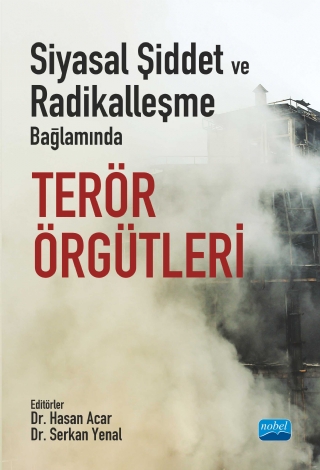
“The only thing that does not change is change itself.” With this word, Heraclitus was sending a message far ahead of his time. The world and humanity, succumbing to time, confirm this promise by living it every second. The impossibility of returning a second ago creates an environment that is constantly changing and transforming in international politics, as in many other fields. Terrorism, like everything else in international politics, is changing. Especially the September 11 attacks created a catalyst effect in the change and transformation of terrorism in the world and created a new beginning.
While political violence refers to the violent operation of politics through society or the state, radicalism (fundamentalism) refers to the tendency to make fundamental changes in science, religion and politics. This book deals with terrorism, political violence and radicalization. This book, which has been prepared with a long effort and with a staff of academicians who are experts in their fields, is aimed to appeal to students, academics, security forces and the general reader who is interested in the subject.
While political violence refers to the violent operation of politics through society or the state, radicalism (fundamentalism) refers to the tendency to make fundamental changes in science, religion and politics. This book deals with terrorism, political violence and radicalization. This book, which has been prepared with a long effort and with a staff of academicians who are experts in their fields, is aimed to appeal to students, academics, security forces and the general reader who is interested in the subject.
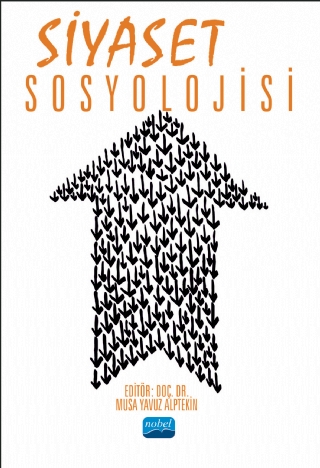
In addition to the content of a textbook that academics who teach Political Sociology can recommend to their students, this book is also a comprehensive book that can answer the questions of researchers, academics and curious readers from various fields of social sciences. I hope that this wealth of topics in its content will be useful to all its readers...
• Politics and Society
• Dependency and Autonomy of Politics: Orthodox/Neo/Post-Marxism
• Political Power, Authority, Hegemony and Legitimacy from Site-Societies to Modern Nations
• Social Contract Theories and Its Importance for Political Sociology
• Nation, Nationalism, Nation-State and Nation Building
• Political Regimes and Social Context
• Elite in Politics and Community Life
• Ideology, Political Ideologies and Society
• Religion and Politics
• Civil Society, Politics and the State
• The Nature of Social Movements Past, Present and Future
• Political Culture
• Political Socialization and Political Participation
• Public Opinion, Propaganda and Political Communication
• Politics and Society
• Dependency and Autonomy of Politics: Orthodox/Neo/Post-Marxism
• Political Power, Authority, Hegemony and Legitimacy from Site-Societies to Modern Nations
• Social Contract Theories and Its Importance for Political Sociology
• Nation, Nationalism, Nation-State and Nation Building
• Political Regimes and Social Context
• Elite in Politics and Community Life
• Ideology, Political Ideologies and Society
• Religion and Politics
• Civil Society, Politics and the State
• The Nature of Social Movements Past, Present and Future
• Political Culture
• Political Socialization and Political Participation
• Public Opinion, Propaganda and Political Communication
